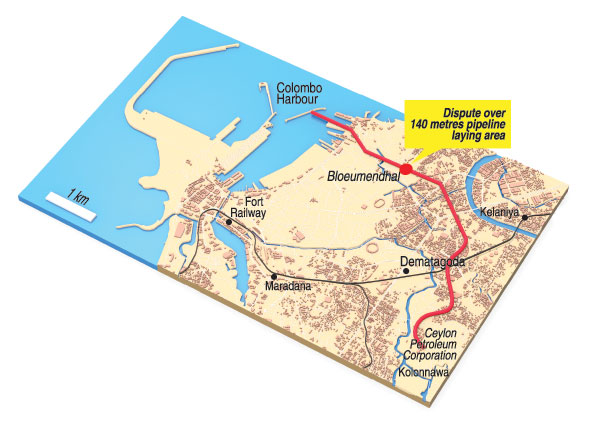News
Squatters to be moved at cost of Rs1.7b to resume oil pipe-laying
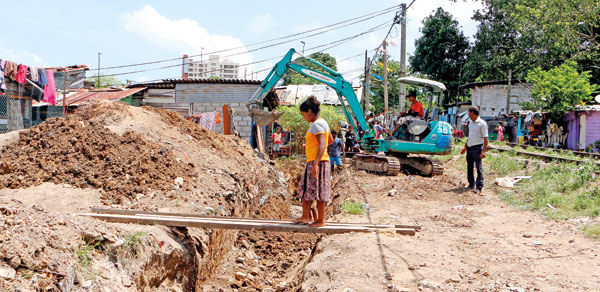
The remaining 350 plus houses are to be demolished and the families are to be relocated. Pix by Priyanka Samaraweera
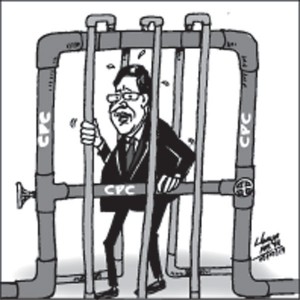 After tense encounters between squatters and the Ceylon Petroleum Corporation which is struggling to complete the last stage of an oil pipeline from the Colombo Port to the Kolonnawa storage facility, 389 squatter families in Bloemendhal will be relocated at a cost of Rs 1.7 billion.
After tense encounters between squatters and the Ceylon Petroleum Corporation which is struggling to complete the last stage of an oil pipeline from the Colombo Port to the Kolonnawa storage facility, 389 squatter families in Bloemendhal will be relocated at a cost of Rs 1.7 billion.
The treasurer of the Executive Officers Union of the Ceylon Petroleum Corporation, Manu Jayawardena, said squatters had complained to the Minister of Power, Energy and Business Development, Ravi Karunanayake, that they were not being compensated. He then ordered the CPC to stop pipe-laying, after which trade unions threatened counter action to resume work.
The unions threatened to cut off the supply of fuel from the Dolphin Pier to Kolonnawa, which would result in the CPC not being able to supply fuel to the country.
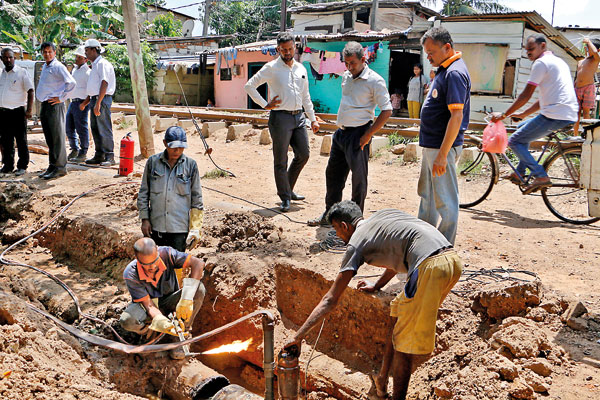
The conflict arose when it became clear that if there is no plan to compensate the families, the pipe-laying would not be allowed to continue
Leaks had been reported on the 75-year-old fuel pipe network on a number of occasions due to corrosion. The line carries fuel from fuel tankers in the port to Kolonnawa.
The main concern of Mr Karunanayake was whether to rehouse the residents, or pay compensation.
The conflict arose when it became clear that if there is no plan to compensate the families, the pipe-laying would not be allowed to continue.
This meant that an eight-year project to rehabilitate over five kilometres of pipeline would be abandoned without completing the last remaining 140m.
A cabinet committee made up of Mr Karunanayake, Finance Minister Managala Samaraweera, Petroleum Resources Development Minister Kabir Hashim and Minister of Megapolis and Western Development Patali Champika Ranawaka were appointed to resolve the impasse.
The trade unions and the government agreed that the cost of a different pipeline laying project would be shared between the Treasury and the CPC.
The project was named the cross country pipeline project, which was approved in 2007. This involves two new pipelines.
In the current system there are five pipes, but only two are used.
The cross-country pipeline would mean that squatters would have to be relocated.
The government had promised to allocate Rs 1.7 billion for the 389 families. The cost would be borne by the Treasury and the CPC. The CPC would contribute Rs 850 million.
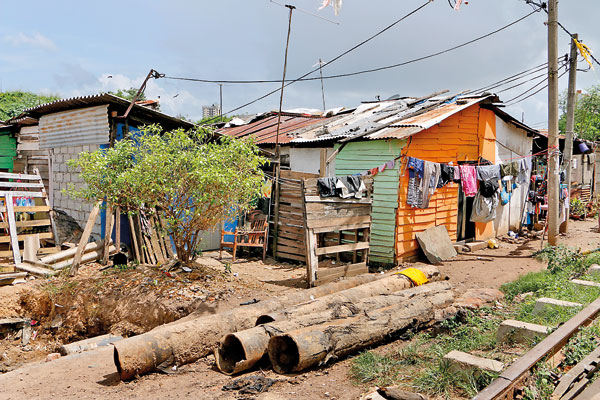 The CPC has called off further trade union protests.
The CPC has called off further trade union protests.
Twenty houses were demolished earlier and the families relocated.
The remaining 350 plus houses are to be demolished and the families are to be relocated.
Mr Karunanayake spoke to the squatters on the morning of July 4 and the renovations resumed that day.
On site project engineer Tharindu Gunawardana, said: “Political influence stopped the renovations, and the very same influence told us that it was okay for us to continue.”
It will take six days for the operation to be completed. This costs the state around US$4 million for delays.
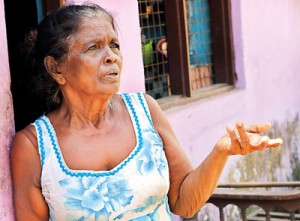
A 68-year-old resident, Galpate Millie: Everyone wants new houses
A 68-year-old resident, Galpate Millie, said the squatters will allow demolitions only after compensation, or alternate housing are offered. “The majority wants compensation in the form of new houses.’’
She said there had been protests earlier as well and 20 houses were given to those affected around December 2018.
“Now everyone wants new houses if their homes are to be broken,” she said.
She said that while she had lived in the area since the 1950s, those living on the other side of the rail tracks had been there for 20 or 30 years and all of them are receiving new housing.
She said she does not envy them but that she too hopes for better housing.
